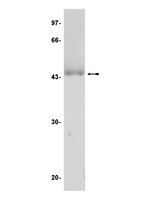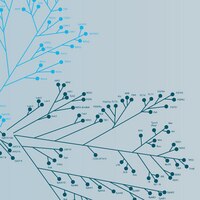JNK-mediated BIM phosphorylation potentiates BAX-dependent apoptosis.
Putcha, Girish V, et al.
Neuron, 38: 899-914 (2003)
2003
Show Abstract
Trophic factor deprivation (TFD) activates c-Jun N-terminal kinases (JNKs), culminating in coordinate AP1-dependent transactivation of the BH3-only BCL-2 proteins BIM(EL) and HRK, which in turn are critical for BAX-dependent cytochrome c release, caspase activation, and apoptosis. Here, we report that TFD caused not only induction but also phosphorylation of BIM(EL). Mitochondrially localized JNKs but not upstream activators, like mixed-lineage kinases (MLKs) or mitogen-activated protein kinase kinases (MKKs), specifically phosphorylated BIM(EL) at Ser65, potentiating its proapoptotic activity. Inhibition of the JNK pathway attenuated BIM(EL) expression, prevented BIM(EL) phosphorylation, and abrogated TFD-induced apoptosis. Conversely, activation of this pathway promoted BIM(EL) expression and phosphorylation, causing BIM- and BAX-dependent cell death. Thus, JNKs regulate the proapoptotic activity of BIM(EL) during TFD, both transcriptionally and posttranslationally. | Kinase Assay | 12818176
 |
Selective interaction of JNK protein kinase isoforms with transcription factors.
Gupta, S, et al.
EMBO J., 15: 2760-70 (1996)
1996
Show Abstract
The JNK protein kinase is a member of the MAP kinase group that is activated in response to dual phosphorylation on threonine and tyrosine. Ten JNK isoforms were identified in human brain by molecular cloning. These protein kinases correspond to alternatively spliced isoforms derived from the JNK1, JNK2 and JNK3 genes. The protein kinase activity of these JNK isoforms was measured using the transcription factors ATF2, Elk-1 and members of the Jun family as substrates. Treatment of cells with interleukin-1 (IL-1) caused activation of the JNK isoforms. This activation was blocked by expression of the MAP kinase phosphatase MKP-1. Comparison of the binding activity of the JNK isoforms demonstrated that the JNK proteins differ in their interaction with ATF2, Elk-1 and Jun transcription factors. Individual members of the JNK group may therefore selectively target specific transcription factors in vivo. | | 8654373
 |
Transcription factor ATF2 regulation by the JNK signal transduction pathway.
Gupta, S, et al.
Science, 267: 389-93 (1995)
1995
Show Abstract
Treatment of cells with pro-inflammatory cytokines or ultraviolet radiation causes activation of the c-Jun NH2-terminal protein kinase (JNK). Activating transcription factor-2 (ATF2) was found to be a target of the JNK signal transduction pathway. ATF2 was phosphorylated by JNK on two closely spaced threonine residues within the NH2-terminal activation domain. The replacement of these phosphorylation sites with alanine inhibited the transcriptional activity of ATF2. These mutations also inhibited ATF2-stimulated gene expression mediated by the retinoblastoma (Rb) tumor suppressor and the adenovirus early region 1A (E1A) oncoprotein. Furthermore, expression of dominant-negative JNK inhibited ATF2 transcriptional activity. Together, these data demonstrate a role for the JNK signal transduction pathway in transcriptional responses mediated by ATF2. | | 7824938
 |













